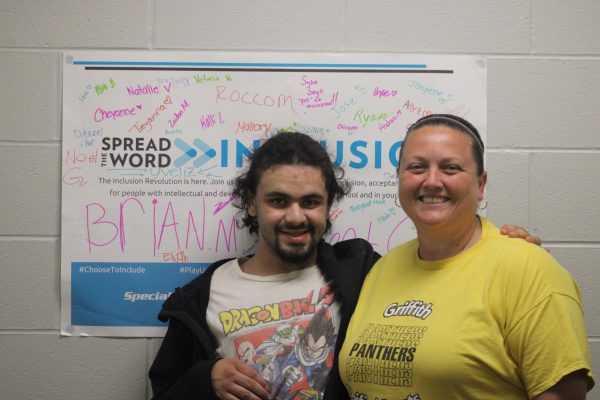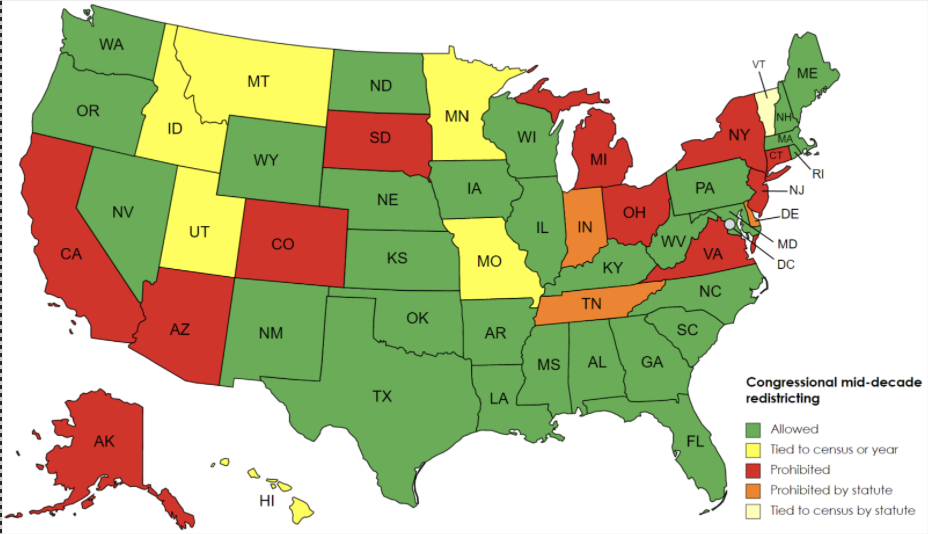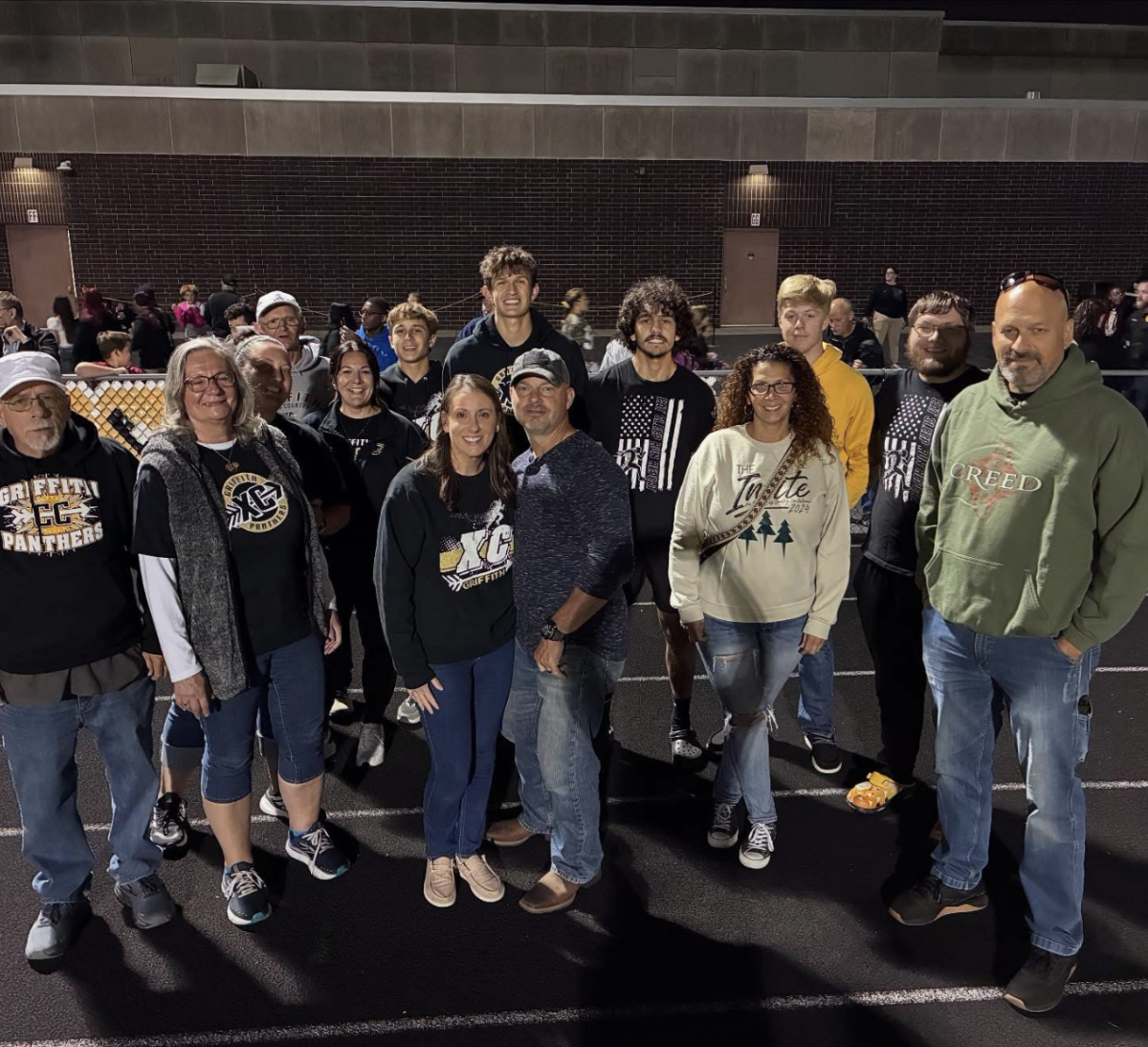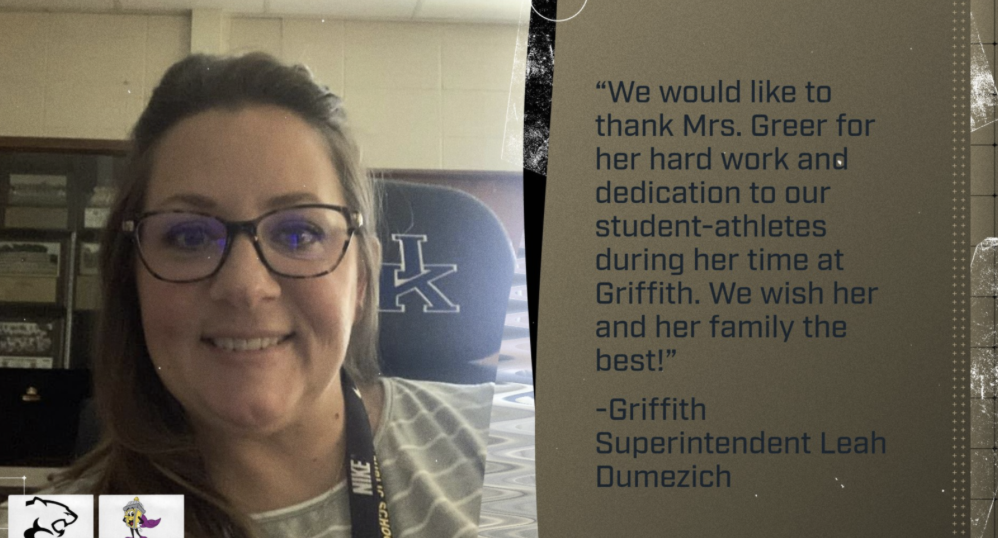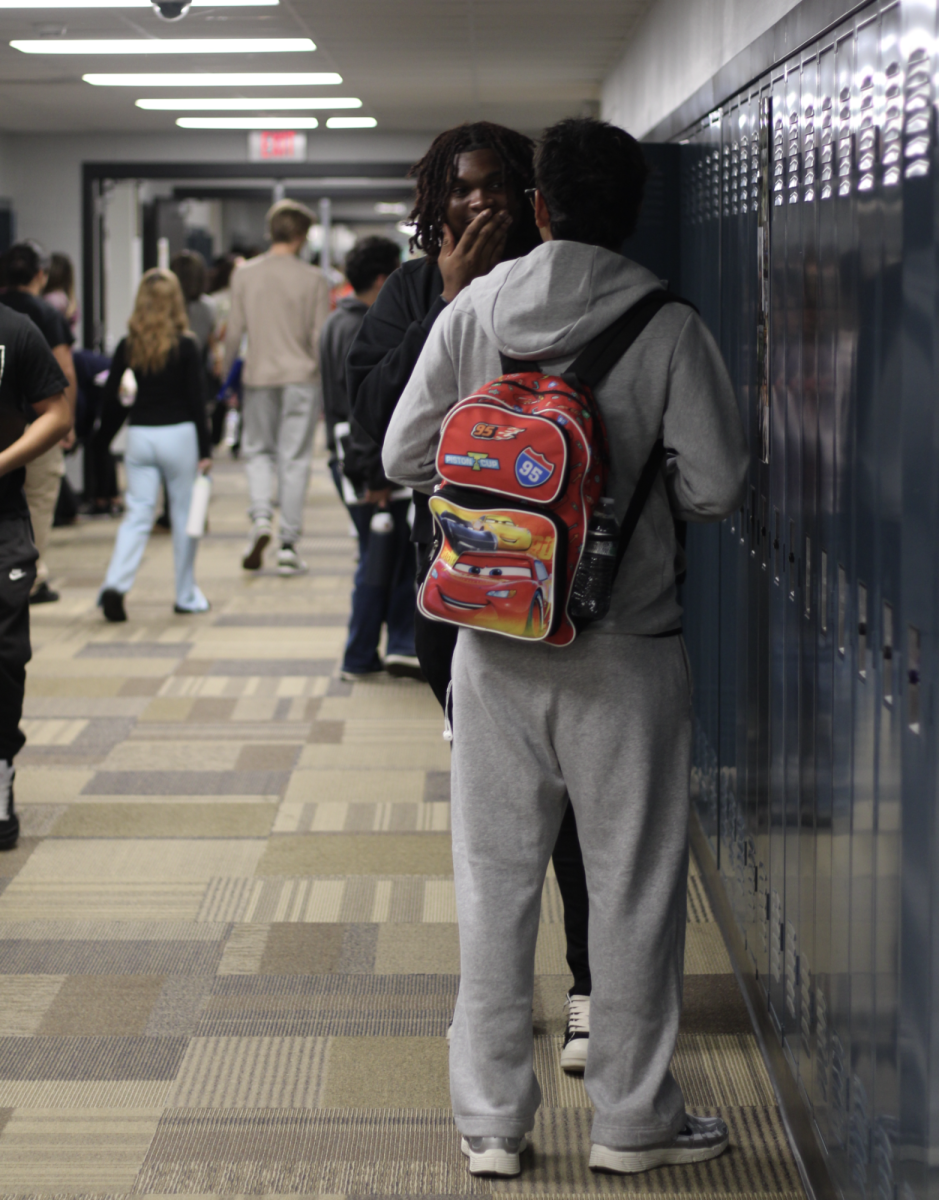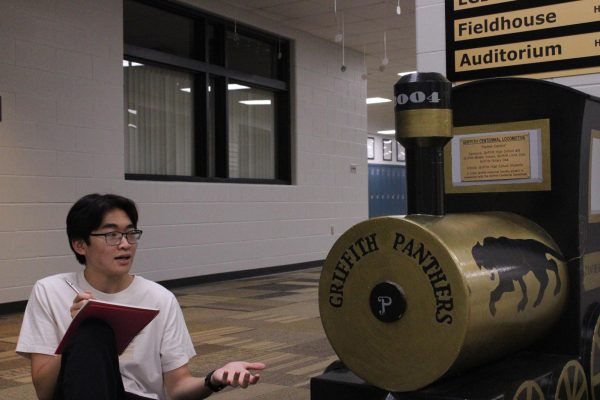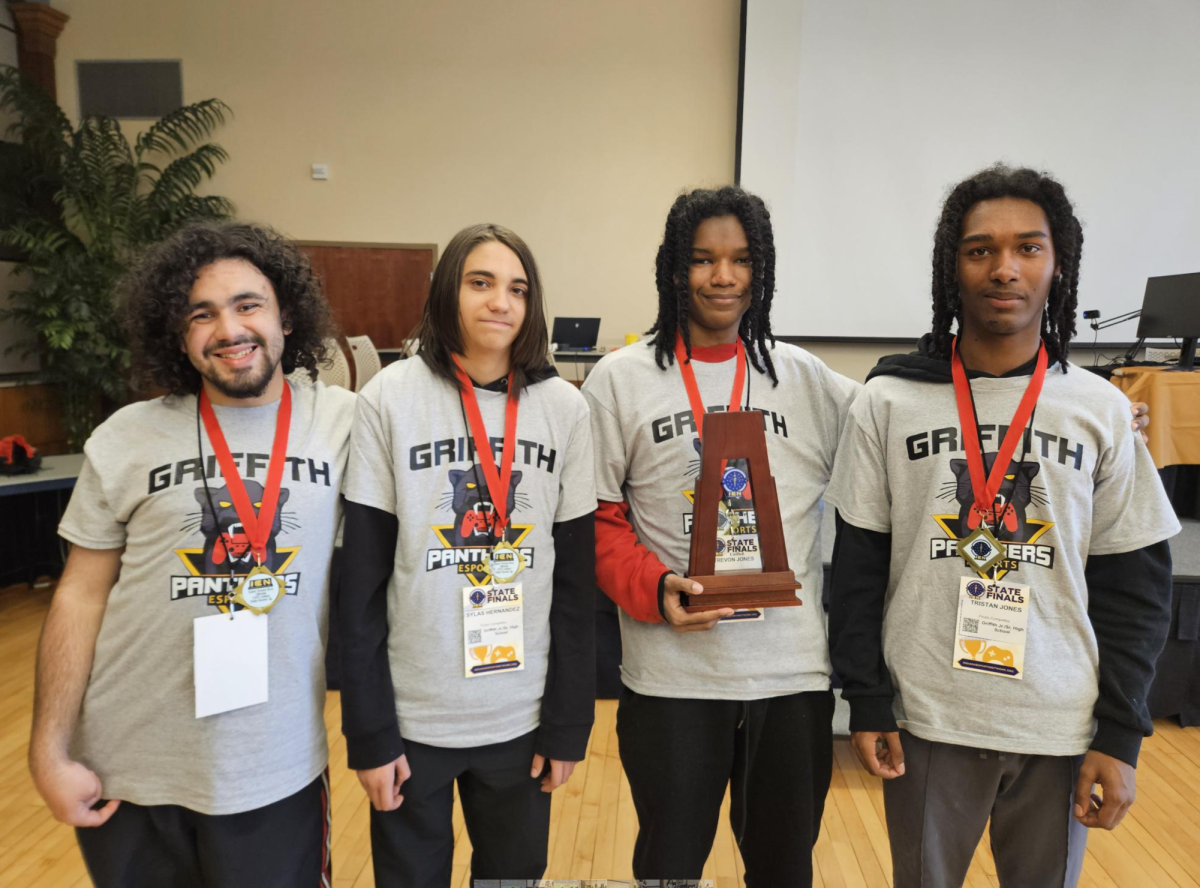
The Griffith Unified Esports team competed in their state competition on Saturday morning, April 26 at Ball State University in Muncie, taking home second place in the Super Smash Brothers category.
The team was comprised of four students: Panther Adult Program student Elijah Bernhardt, junior Tre Jones, sophomore Tristan Jones, and sophomore Silas Hernandez.
At State, the competition was best two out of three. They lost the first and second round, placing them in second place. Bernhardt and Hernandez both recalled a tough match against a school playing the character King K. Rool. “We got our butts kicked by [him]. He pretty much beat all of us,” Hernandez said.
A little while after the last round, the team found out their ranking at the awards ceremony—but Tre recalled his confidence in his performance before even learning what place they came in. “I wasn’t nervous after the last round, because I knew I did my best.”
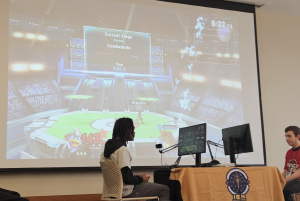
Tristan, while slightly disappointed with their runner-up position, enjoyed the team experience. “I think my team was pretty good. We were pretty cool with each other, and I don’t think there was a problem with any one of us. It was just relaxed.”
Bernhardt expressed his enjoyments about being in Unified Esports. “My favorite part was playing the other schools…playing Smash, and getting characters.”
Special education teacher Melissa Diekelmann has organized the Unified Esports chapter at Griffith for over four years now, starting after COVID. Griffith participates in two categories: Rocket League in the fall, and Super Smash Brothers in the spring. They received two Nintendo Switches through a grant from Special Olympics for the purpose of practicing Super Smash Brothers, which was especially important for players like the Jones brothers, whose personal Switch is currently broken.
At team practices once or twice a week, the players usually borrowed a TV from the library to practice among themselves or even against an AI bot to learn how to defeat a character more efficiently.
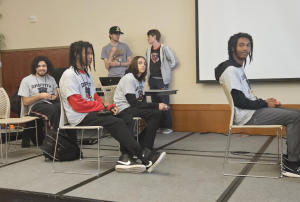
The team decides among themselves the order in which they will be playing, based on their available skills and characters. “After the first match, the boys decided that they wanted to change up their order based on how the other team was playing, just to see if that would help—and it did,” Diekelmann said.
During competitions, each team has twelve “stock” (or lives) among them in total, three for each teammate’s character. Matches are fought in a one-versus-one style, with one student from each school fighting at a time and switching out once they lose all of their stock. At times, the last two players did not get to fight at all because the first two had defeated all four of the other team’s characters—but there is still yet to be a match where one player has defeated the entire enemy team.
Unified Esports is organized in collaboration between Special Olympics and the Indiana Esports Network (IEN). Unified Esports, like the other Unified Sports, has player registration requirements and guidelines for the coaches to follow. There are “athletes” and “partners”—athletes being those with intellectual and developmental disabilities (IDD), and partners being those without IDD. An athlete can choose to classify as either an athlete or a partner, but partners can only classify as partners.
For Unified Esports specifically, there are two athletes and two partners on one team, and these guidelines are mainly enforced by the coaches themselves (rather than the IHSAA for Unified Sports), due to the program’s small scale as of now. Most importantly, across all Unified programs, this information remains confidential between the student, coach(es), and overseeing organization in order to foster a welcoming environment for everyone.
IEN Board President Nick Parcell began coaching Indiana esports in 2019, back when there was still only a high school organization: the Indiana High School Esports Network (IHSEN). Beginning in 2021, the IEN was created to house IMSEN (middle school), IHSEN (high school), and IUEN (unified).
“I love that IUEN fits into IEN’s vision of creating gaming environments that are inclusive. It is a core part of our identity,” Parcell said. “I would love to see every school that has esports have a Unified team. I would also love to see every school that participates in Special Olympics start an esports team. We just need help getting the word out.”
Everyone plans to return to the program next year. Diekelmann said, “esports is still fairly new. I think some schools might be terrified of it—I am a little bit—but I’m lucky that most of my kids who play know what they’re doing. For me, it’s just another opportunity that I can give my students.”
